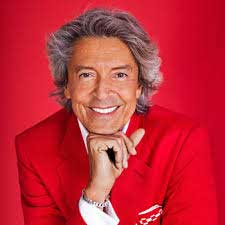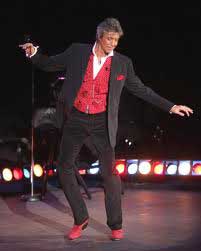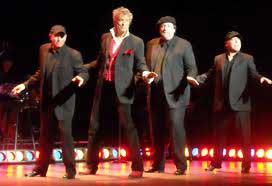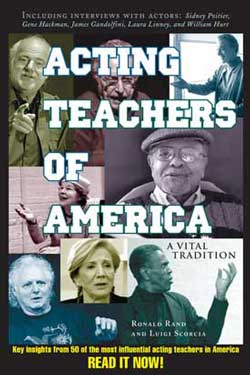 Tommy Tune
Tommy Tune
Known as one of the most prolific director/choreographers of the twentieth century, Mr. Tune currently tours in “Tommy Tune Steps in Time: A Broadway Biography in Song and Dance.” Most recently, he was seen at Town Hall, and across America. Upcoming includes: August 9th “Taps, Tunes and Tall Tales” Eugene O’Neill Theatre Center; and August 31st Westhampton Beach PAC. Mr. Tune began his career as a dancer in the Broadway shows “Baker Street,” “A Joyful Noise,” and “How Now Dow Jones.” His other Broadway appearances include “Seesaw” (Tony), “The Best Little Whorehouse in Texas,” “My One and Only” (two Tonys), “A Day in Hollywood/A Night in the Ukraine” (Tony), “Grand Hotel” (Tony), “The Will Rogers Follies ( two Tonys), “Nine” (Tony), “Grand Hotel” (Tony). His film work includes “Hello Dolly,” “The Boyfriend,” “Mimi Bluette… fiore del mio giardino.” In 1999, he made his Las Vegas debut as the star of “EFX.” Mr. Tune is the recipient of the National Medal of Arts, honored with a star on the Hollywood Walk of Fame, designated as a Living Landmark by the New York Landmarks Conservancy. He has also been awarded eight Drama Desk Awards, three Astaire Awards and the Society of Directors and Choreographers' George Abbott Award for Lifetime Achievement.
What gives you the greatest joy today in the work you’re creating?
 The audience, without a doubt. It’s all about their reaction to the show. Each audience is different. It makes me think of a Japanese saying: Each step is a building block; each performance is a stone in the path.
The audience, without a doubt. It’s all about their reaction to the show. Each audience is different. It makes me think of a Japanese saying: Each step is a building block; each performance is a stone in the path.
When did you decide to create your current show? How did you put it all together?
I woke up January 1st five yrs ago, and I realized it was my 50th year anniversary in show business! I had gotten my Equity card in Dallas doing musicals during the summer musicals. And I thought it was time to look at what I had done in terms of telling my story – who I was and how I got here.
People ask me how I chose all the songs I sing in the show, and I tell them I’m doing these songs from all the shows I’ve done during my life, and then there are also songs from shows I like, like ”Promises, Promises,” a Carole King song, one by Green Day..
Still, mostly they’re the songs from the “sound track of my life.” And they’re not necessarily shows I was in but they tell my story and they’re attached to every important event in my life. The hardest part was deciding what to leave out.
What does it take to stay physically and mentally in tip-top shape, and diet-wise to prepare yourself for each show?
I do some important physical exercise every day. It can be yoga, movements, but I need to do something every single day. I also have rehearsals, voice classes. Not a day goes by where there isn’t some kind of class or physical warm-up for the maintenance

I also have a special diet .You know there are all these people who seem to “know” everything there is to know about the best diet. I do a lot of reading, I listen to what they say/ I try a variety of things, I experiment, trying things, sometimes to my benefit, sometimes to my detriment.
I’m very strict, diligent…disciplined, that’s the word, because, you know as a dancer, you have basically your talent, and the main thing is establish a balance, as with anything, when you’re putting together a show, some songs are slow and some are fast, and your heart is in every note, so there are certain things you have to do to be in balance out. You have to know what is feeding your instrument. Right now I think I’m feeling very well.
At the beginning of your career, you did the film “Hello Dolly” with Barbra Streisand and Walter Matthau. How did you get the role and what kind of an experience was it for you?
It was thrilling to get that. At the time I was dancing in the chorus on Broadway in
“How Now, Dow Jones,” and I was covered while I was flown out to Hollywood for the screen test. I was the only person from New York flown out there, and I tested along with twenty other guys for Roger Edens.
There are no “accidents,” so the idea of getting the job was wonderful.
I actually didn’t find out until about two to three weeks later. I was doing a show and was in the dressing room along with everyone else in the chorus, and we’re tightly packed in there, and I hear: “There’s a phone call. They want you.” So I climb over everybody at our dressing room table, and hear on the other end of the phone: “How would like to go to Hollywood and make a movie?”
I had never made a movie. I need an audience. It’s definitely not the same thing to have a machine filming you. I personally prefer doing a whole show from start to finish, and keeping going. You can’t stop if you don’t get it right. More recently, I played a role on “Arrested Development,” and they’ve called me three times to go in and “fix” my performance. I’ve had to go back in to do some looping of the dialogue.
I feel I probably had a better experience on my second film working with Ken Russell; he could be a bit “crazy” but he was a brilliant director to work with.
When I worked with Gene Kelly, (the director of “Hello Dolly”), he pulled me aside after one of the takes and he gave me the greatest bit of advice I’ve ever gotten – “dance better.”
One thing that I’m reminded of, by your giving me this stone that you’ve painted with this beautiful sea turtle on it, which I just love, was when we were shooting “Hello Dolly” on location in Garrison, New York. And I haven’t thought of it since that day.
Well, we were on location, it was up on the West Point campus, near Poughkeepsie, and here we are shooting in this location, and someone in the crew says to all of us, and we’re in our costumes in the middle of shooting, that “You’ve all got to see this.” So we step over and look over this fence, and there’s this giant sea turtle in what you could describe as sitting in loam, and she had somehow come down a tributary from the sea, and came through the grass, and had made her way into this vegetable garden, and there she was, digging a hole for her eggs. So here she was, in this garden in the middle of all this loam, and the corn is growing, and we all just stood there in our costumes and watched her bury her eggs. Of course, what happened to her offspring, who knows? You just sort of hope they made their way back to the sea somehow.
Your carry on the tradition of several great musical directors including George Abbott, Joshua Logan, Katharine Dunham, Harold Prince, Jerome Robbins, Martha Graham, to mention a few – what does it mean to you to be a part of that kind of tradition?
I’m proud to be a part of it and to include me with that list, it’s flattering. I guess that’s a question I can’t answer because when you’re in the midst of creating and bringing yourself to art and bringing art to others, I think if we’re lucky to be able to do it, that it’s a collective process. l feel we’re all just working the best we know how, serving the greater god of the arts, using the gifts we've been given.
You’re also a painter. How have you allowed yourself to keep seeing with new eyes?
Well, each day I start with a thank you and a prayer. In a way, it’s ‘cleaning the canvas,’ which I do each day when I begin a new painting. And when I begin I just never know what’s going to happen.
A few days ago I began to paint and allowed whatever wanted to come. Well, I’ve never been a big fan of cubism, but once I began it became a cubistic painting,
Now if you look close up at either a TV screen or a computer screen, it’s always moving since its all pixels, cubes and dots. So in a way, pointillism became cubism, and we’re surrounded by cubism, especially when you look at the buildings in this city.
It’s a Euclidean derivation of what we see. We may not consciously see it, but cubism is surrounding us and in front of us and affecting our subconscious.
I went to the Metropolitan Opera and I’ve been seeing the full cycle of performances of the Ring cycle directed by Robert Lepage, I saw “Das Rheingold” the night before last and tonight I see “Der Valkyrie.” Lepage set is also cubism sculpture. I predict a big movement in relationship to this. Well I guess I received it and it’s been affecting me.
Ultimately I think to create anything, the magic ingredient is love. That’s the highest source, the main ingredient. Right now I’m still doing what I’m doing on stage because when it hits you, you know you’re working in a state of love with what you’re doing, and if not, change it because the world needs all the love it can get. That’s what it’s all about.

























